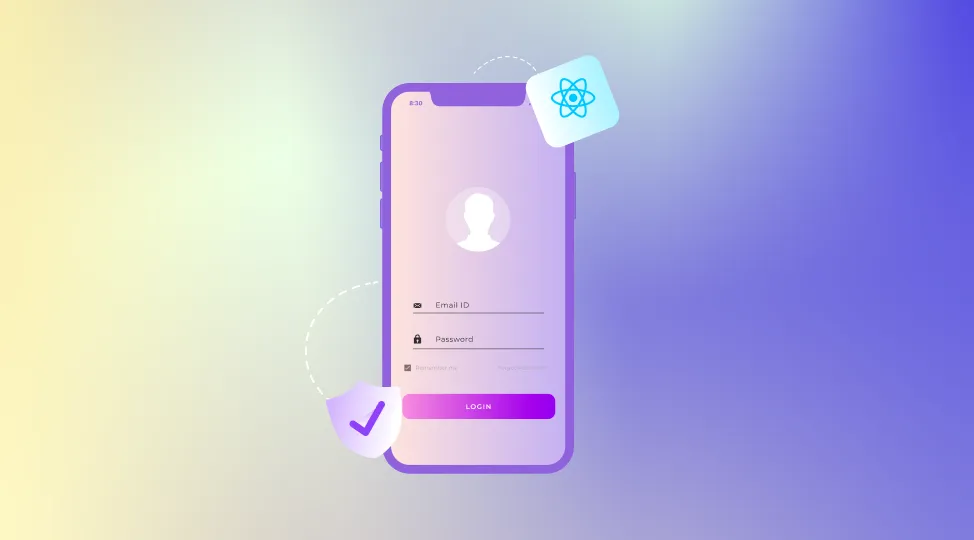“Data science has successfully emerged as a fundamental driving force in digital transformation efforts. It is the best way of creating and validating solutions to improve decision-making across the board”.
Covid-19 pandemic! It hit the world hard from every angle, from economic to psychological. And the war isn't over yet! Businesses of all sizes are heading towards an environment of uncertainty and ambiguity - this is not a new normal, rather a no normal.” And this does not normally require continuous flexibility, innovation, and investment or re-investment in data and analytics
strategies since old ones are of no use.
And data and analytics play a more vital role in any business strategy than ever. It’s because insights from them add significant value to digital transformation initiatives. Therefore, data-driven analytics eventually help determine the business’s success by incorporating substantial changes based on numbers.
And remember, numbers never-ever lie!
Moreover, the IT/software industry is one of the fastest-growing industries globally. This industry heavily relies on data-driven technology to solve various complex problems. And based on a Gartner report, the IT sector would be spending around USD 3.8 T globally. It reflects how many enterprises invest in software.
Furthermore, digital technology has helped almost every industry, and data- driven trends are helping all mobile app development companies to adopt the changes and meet customer expectations.
So, to build the best customer experience that scatters across countries, cultures, and continents and balances the aspirations and expectations of billions of users, investing in data and analytics is the key! Because it undoubtedly enhances the efficiency of businesses investing in mobile app
development in multiple ways to ensure success.
Thus, to provide a detailed perspective, we have researched and collected vital information you can leverage to build a robust user experience for your business.
How Data and Analytics are Being Helpful?
There are various ways to leverage data insights/data-driven analytics to transform the business environment entirely.
Some of them are -
Collaboration
Employees/team members in IT firms need to work closely and together. The team members hesitate to collaborate and work without a data-driven approach. So, to mitigate such scenarios in work environments, business organizations should use a data-driven approach to establish collaborations among different teams.
Data-driven collaboration leads to -
- Low barrier among team members
- Better performance and innovation
- The right approach and faster results
- Easily calculate business’ roles and responsibilities.
- Better teamwork across departments
Note: Data-driven collaboration requires every team member to collaborate as per the approach.
The superiority of Native Apps
The boom in IT and electronics, and the availability of high-speed internet at low cost, have made people switch from laptops or computers to mobile phones. And because of this, mobile apps play an essential part in promoting the success of any business.
It is 2025, and software developers are observing the superiority of native apps because of the data-driven approach, which eventually provides an unparalleled user experience.
Data-driven technology and machine learning provide -
- The unique approach to solving complex problems.
- Support native apps across different platforms.
- Robust security and usability.
Dependence on Cloud Services
Data analytics and cloud services have revolutionized the IT/software industry. And because of the increase in demand, businesses worldwide are investing heavily in cloud services for data recovery and scalability.
Enterprise companies providing cloud services are shifting from multiple vendors to single vendors, eventually helping minimize the different risks related to the business. The data-driven approach brings several tools to help prevent complex issues for single users.
Note: It is a fact that most businesses depend on SaaS, PaaS, and IaaS platforms for team management and to streamline business operations. And it is expected that there may be a rise in multi-cloud initiatives this year.
Data and Analytics Tools for Self-Service
Many data and analytics tools for self-service, such as Power BI from Microsoft and Tableau, have become extremely common today. And with data-driven technology, complex problems are now easy to tackle with the help of information flow.
The data-driven analytics help(s) -
- Increase employee productivity
- Reduce the need for employees to do the work manually.
- Save time.
Businesses today significantly rely upon data and must opt for data preparation and analytics tasks, ranging from finance to marketing. Therefore, they need the right tools (equipped with advanced machine learning technology) to ease acquiring accurate data.
These intelligent tools have certain features, such as -
- Use of machine learning (ML) and natural language processing (NLP) technology to improve data matching.
- The reusability feature - helps data management and analytics.
- Further Maintenance of the data pipeline.
- The ability to explain what can be the business outcome.
The Three Fundamentals To Your Business Strategy
Data and Analytics Strategy
Give preference to learning how to build a data and analytics strategy that enables digital acceleration and agility while driving significant business value.
Technology
Invest in the correct data and analytics studies/research and tools that will change your organization, compare technology providers, and separate hype from reality.
Leadership
To bridge the gap between business and IT, develop leadership skills to drive innovation, and make data and analytics central to your culture because it builds a resilient, adaptable, and data-literate organization that will stand firmly against market crises.
What Strategy should you follow?
- You must establish the strategy, organization, culture, and related skills for business priorities and desired outcomes to leverage critical data and analytics trends.
- Use data and analytics to survive, thrive in the market, and remain ahead of the curve.
- Embrace the cultural changes needed to make the use of data and analytics.
- Keep the data and analytics insights aligned with the business outcomes and digital acceleration.
Data and Analytics In Mobile App Development
Based on a Statista survey report, mobile app downloads are forecasted to increase to 258.2 B by 2022, which was 205 B in 2018. Numbers are skyrocketing, and this broad mobile app user base generates enormous raw data (unstructured data).
- Hive
- Cloudera
- Hadoop
- Tableau
- Spark
- Power BI
These tools enable developers to produce robust mobile apps while integrating new features.
The necessity of Data-Driven Analytics in Advance App Development
There is a massive necessity for data and analytics in mobile app development since it embodies data collected from video and voice recordings, social media, machine data, continued preservation, and structured and unstructured data logging.

And the role of data-driven analytics in mobile app development is not just to assess the data and provide you insight instead, to run it more intensely.
What makes Data and Analytics meaningful and essential factors in Mobile App Development -
Analyzing User Experience
There is unprecedented growth in the mobile app development industry, which is growing steadily at a rapid pace. Besides customer requirements, developers are curious to know the ways users use their products. Thus, to conduct a detailed analysis of user experience, data and analytics play a vital role in mobile app development.
It provides -
- A detailed analysis of user engagement for every feature/functionality introduced in an app.
- An option to utilize similar data to list everything users require, want to change or enhance.
Availability of Real-Time Data
The human brain tends to seek change often. And because of the availability of new-gen graphics on high-end mobile devices, users now want something exclusive, making organizations offer viable solutions. That, in turn, transforms business trends, requirements, and tactics.
And to navigate in the crowded market, organizations take help from data and analytics to boost the mobile app development process to be aware of the constant change and evolving client needs.
It gives -
- Awareness of the world of clients/users, i.e., what they need and what can be great for them.
- Highly prospective real-time data assessment helps organizations make data-driven and real-time decisions that significantly improve user experience.
User-Driven Apps
Data and analytics deliver elaborative information by reading users' behavior. Once accurate info is established, it provides businesses with innovative ideas for developing top-notch and competitive mobile apps. For an app's initial success, various factors are quintessential.
Some of them include -
- It must be convenient to use.
- It has an eye-catching look.
- It must be free of bugs.
And if you want your customers to use your app in the long run, you must meet all their needs. That's where the applicability of data and analytics steps in since it offers a detailed perspective/analysis concerning the user experience.
Hence, if you can access deep data analysis, you can develop a better app that encircles user-oriented planning and delivers an unmatched user experience.
Note: Enterprises can also create solutions to enhance existing apps to attract potential users while retaining older ones. Because it helps create user-driven mobile apps and acts as a perfect tool to raise the revenue and reputation of your app and your organization.
User-Friendly Marketing Campaigns
It is essential to know your users' behavior (their requirements, likes, dislikes, and expectations) to put your product at the top in the market.
It is to develop customized or user-friendly marketing campaigns.
Data and analytics make it easy to assess buying patterns, demographic data,
and consumers’ social behavior that frequently changes a business' marketing
plans.
Thus, with data and analytics, you can -
- Create the right tactics,
- Fuel engagement,
- Drive adoption,
- Build an app's revenue,
- And boost satisfaction.
Understanding Clients' Requirements
Combining high-quality mobile apps and high-end smartphones always wins people's hearts and meet their requirements. However, clients always look out to manage the costs involved in mobile app development. With data and analytics, it's easy to assess the involved expenses. And it would also benefit a business by reviving awareness.
Data and analytics describe clients' requirements in the present marketplace.
Moreover, data and analytics allow you to -
- Generate concepts for quality.
- Invest in innovative and futuristic mobile apps.
- Understand the interaction and reaction of the users of various lifestyles from various locations, backgrounds, and age groups.
Enhance Sales Conversions
The purpose of developing a mobile app (or an MVP/an initial version of your inspiring idea) is to raise customer interaction, fix client/users' issues within a few clicks, boost revenue, etc.
With data and analytics help, you can collect local data and understand users' behavior. If done right, your mobile app could be the next big app in the global market.
Thus, data and analytics are now integral to enhancing mobile app development. Because software developers today do rigorous research on the available data to pull valuable insights to ensure that they can provide the desired solution that will monetize your mobile app. And hence, the efforts result in enhanced sales conversions.
Social Media Analytics
You're well aware of how social media boosts anything out there.
So, why not use it to grow your business?
It will help people recognize your products on numerous online/social media platforms. And using complaints or dynamic media like video and images and client reviews, you can quickly figure out what people want.
Social media platforms to use -
YouTube, Facebook or Meta, Twitter, Instagram, WhatsApp, Snapchat, LinkedIn, Pinterest, and Reddit.
Invest in people who can provide social media analysis for your products and organization to implement social media analytics successfully. It benefits you with positive client experiences and allows you to respond accordingly.
With this, you will also come across more fantastic ways to sell your product once you know your clients better and understand their methods of interacting with various social networks.
User Experience Analytics or UX Analytics
Analyzing user experience (UX) is crucial for any business to succeed in today's complex and crowded market. And mobile app development cannot remain untouched from the same.
Since data and analytics shed light on users' critical behavior of the core functionalities of a mobile app, it helps the developers to build a mobile app that users want.
Data analytics also allows mobile app developers to identify the loopholes in user experience and upgrade the product as desired from the user's end.
Top Brands Using Data and Analytics For User Experience
Today, most business organizations employ data-driven technology to pull user-centric real-time data to deliver outstanding services and user experience.
The famous names of such organizations are -
- Uber - Along with data analytics, Uber also incorporates Visual Analytics to make data more actionable and understandable, which leads to finding out where exactly the most significant mismatch between supply and demand.
- Starbucks - This organization conducts and assesses over 90 million weekly transactions at more than 25,000 stores worldwide. How's that possible? The straight answer is - data and analytics.
- Amazon - Amazon uses data and analytics to locate the closest warehouse to a
customer/vendor to reduce shipping costs.
- Groupon - A global leader in the local e-commerce marketplace, which has a presence in more than 48 countries and allows people to search and discover great businesses at unbeatable prices. It's happening because of data-driven decision-making.
- Netflix - This organization reduced customer churn by USD 1 B using data and analytics.
- Delta - Unites States airline and a legacy carrier track customer sentiments that improve user experiences.
- UPS Orion or Delhivery - Optimizes logistics with Big Data or Data and Analytics.
- Airbnb - Improves conversion using A/B Testing.
- Orbitz - Leverages data and analytics to deploy Dynamic Pricing for its
users.
What's next?
Data and analytics have become integral assets of any business organization and are more critical than ever. Now and then, we come across new use cases for data that involve machine learning (ML), artificial intelligence (AI) , and analytics in endless ways. And as constant change persists, embracing
flexibility, agility, and adapting to new and challenging business environments in the global marketplace is a must.
The future of data and analytics in mobile app development holds a significant role. That’s because mobile app development companies and other big-tech companies are investing heavily to address these changes in the world market, create new opportunities, and prepare organizations to offer a perfect user experience.
Furthermore, the mobile app industry will probably generate over USD 600 B in revenue by the end of 2022. That’s easy to comprehend since there is a standard shift in users' behavior and an increase in the use of mobile app technology.
The Wrap-Up!
Today, the data-driven approach has effectively and concisely equipped the IT/software industry with considerable changes to make. Businesses are now moving from manual operations to data-driven strategies in a unique and unified way to maximize profits and enhance user experience. And this is good since data analytics offers massive insights from users' ends - their location, needs, and choices. And to remain ahead of the curve, business organizations are incorporating data and analytics effectively.
It is our observation that mobile apps change rapidly, unlike computer apps. In that light, mobile app development companies must also align themselves to leverage data and analytics and its features to transform web applications and mobile apps.
Today, mobile apps are popular, and their demand is skyrocketing since they please users through the display and are easy to use. Therefore, developers need to work hard, and app development companies need to appoint a team of experienced mobile app developers to offer an engaging mobile app that would give people a unique user experience.
And if you are looking for a mobile app development company that can give wings to your ideas. Then, Quokka Labs is your right destination where creative, dynamic, and experienced mobile app developers and UI/UX designers work together to deliver top-notch and market-ready mobile apps. Contact us today immediately to get your free quote and give great pleasure to your audience through a mobile app.
Tags
User Exeperience
Data and analytics



 Facebook
Facebook
 Twitter
Twitter
 LinkedIn
LinkedIn
 Pinterest
Pinterest






